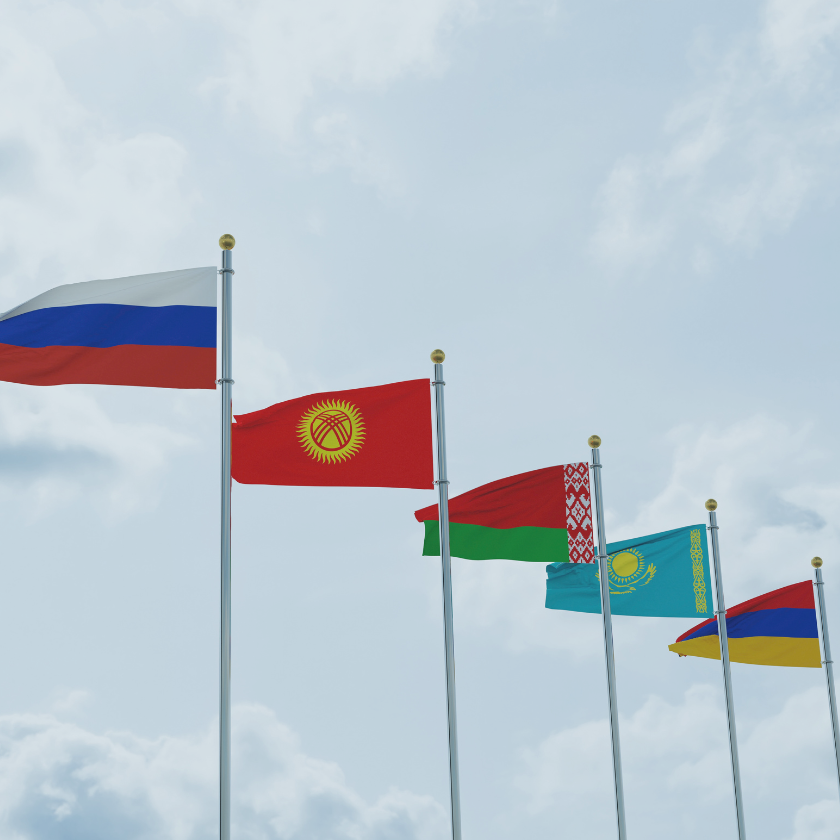Russia-Eurasia
Eurasia is undergoing profound changes. While the Soviet past has left a lasting imprint, Russia and the countries of Eastern Europe, Central Asia and the South Caucasus have their own trajectory.
Related Subjects

New Cold War? What New Cold War? Confronting the Geoeconomic Fragmentation Narrative with the Data
It has become widely accepted that the world economy should be seen as increasingly shaped by forces of fragmentation, resulting from geopolitical tensions. This article takes another look at this narrative, using international trade data. While an aggregate analysis is consistent with a new Cold War narrative, whereby international trade is increasingly seen as split into two blocs, this is only a mix of very different outcomes. Far from being a widespread trend, geoeconomic fragmentation of trade flows is only significant in “hotspots”: Russia's foreign trade and China-US bilateral exchanges, and the impact is massive in these cases. Outside these “hotspots”, there is no tangible sign that geopolitical tensions have been shaping international trade patterns in terms of blocs, nor is there any hint of a trend toward nearshoring – to the contrary, in fact.
Deja Vu with BMD: The Improbability of Russia-NATO Missile Defense
Consistent attempts by the US and NATO to cooperate on ballistic missile defenses have long divided Russia and the West. The failed talks on this issue have built a foundation of frustration that has reinforced the general lack of trust among the parties on this issue.
Kazakhstan and Eurasian Economic Integration: Quick Start, Mixed Results and Uncertain Future
Kazakhstan's economic integration with Russia and Belarus has been advancing at break-neck speed.

Russia: Will the Web Reinvent Policy?
The Web has seen a spectacular development in Russia, opening an intermediary political space through which protesters against the regime have been able to coalesce, as shown by the events in late 2011 and early 2012.
What the North Caucasus Means to Russia
The crisis in the North Caucasus has had a negative impact across all of Russia.
Economic Constraint and Ukraine's Security Policy
Since winning the 2010 presidential elections in Ukraine, Viktor Yanukovych has worked hard to repair Kyiv's relationship with Moscow.
Russian Energy Security and Foreign Policy
Russian Civil-Military Relations: Is There Something New with Medvedev ?
How the Chinese See Russia
This essay examines Chinese attitudes toward Russia as a great power, neighbor, partner and competitor.
Russia, China and the United States: From Strategic Triangularism to the Postmodern Triangle
Over the past decade, there has been much talk about a new world order, in which American "unipolarity" would be superseded by more equal arrangements between the great powers. One such idea is a return to the Russia-China-US triangle. In truth, however, the time for such geopolitical schemes has long passed.
What Is China to Us? Westernizers and Sinophiles in Russian Foreign Policy
As China's role in shaping the world grows, Russia is increasingly unable to resist its neighbor's economic and political influence. As a result, Russia's China discourse has evolved from the one dominated by Westernizers to one largely controlled by Sinophiles. The latter favor development of relations with China based on Russia's economic and security priorities. Although the official discourse remains focused on strengthening ties with Europe, the state is increasingly subject to pressures by various groups, both inside and outside state structures, with preferences for China. For the Western world, the prospect of the growing "Sinophilization" of Russia's foreign policy implies the need to strengthen ties with Russia, while preserving the existing level of strong relations with China.
Support independent French research
Ifri, a foundation recognized as being of public utility, relies largely on private donors – companies and individuals – to guarantee its sustainability and intellectual independence. Through their funding, donors help maintain the Institute's position among the world's leading think tanks. By benefiting from an internationally recognized network and expertise, donors refine their understanding of geopolitical risk and its consequences on global politics and the economy. In 2025, Ifri supports more than 80 French and foreign companies and organizations.







